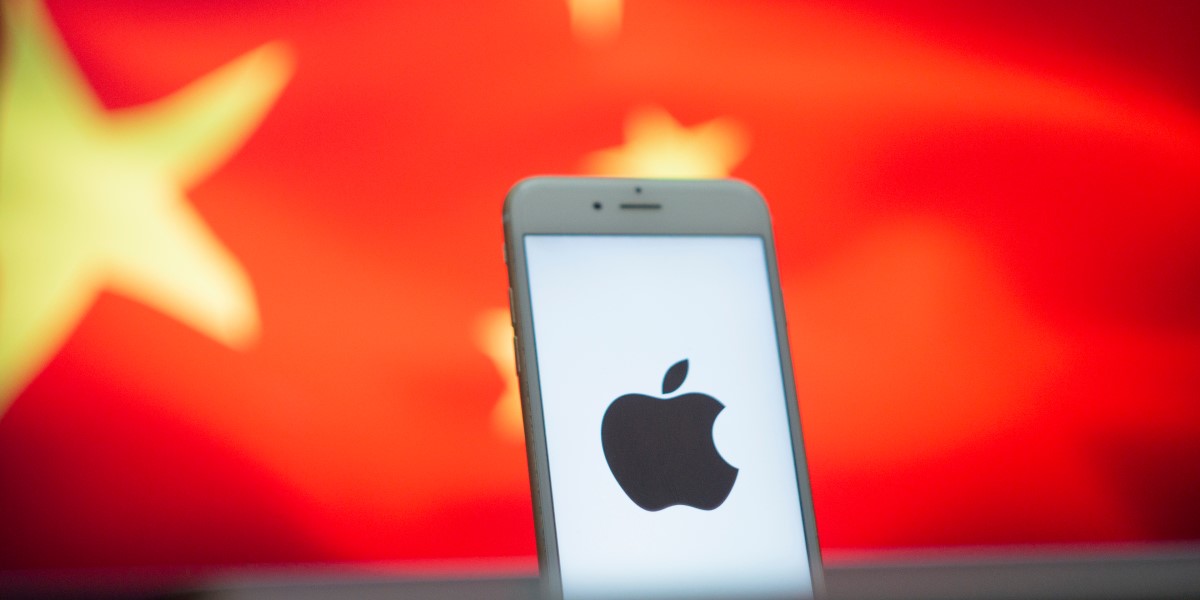China Kind-of-mostly Denies Its Banned IPhones From Use In Government

China's Foreign Ministry has denied reports that government agencies have restricted the use of Apple's iPhone.
"China did not issue any law, regulation or policy document that bans the purchase and use of cellphones of foreign brands, such as iPhone," Ministry spokesperson Mao Ning said, according to a transcript of her Wednesday press conference.
That's not quite a direct denial of the Wall Street Journal report that broke news of the supposed restrictions, which states "China ordered officials at central government agencies not to use Apple's iPhones and other foreign-branded devices for work or bring them into the office." The report added that the orders were made by "superiors."
The spokesperson continued with the cryptic remark: "However, recently we did notice media reports about security issues related to iPhone."
She then added: "The Chinese government attaches great importance to cyber and information security and treats Chinese and foreign companies as equals. We hope all cellphone companies operating in China will strictly abide by China's laws and regulations."
Those laws, she added, "enhance information security management, protect consumers' data stored in the cellphones against theft by any individual or organization, and ensure information security."
She also observed that "China is committed to advancing high-level opening up."
"We protect foreign companies' rights and interests in accordance with the law and strive to foster a first-class market-oriented, law-based and internationalized business environment" Mao noted, adding that China will "always treat foreign companies with openness and welcome them to seize the opportunities presented by China's development and share in the outcomes of China's economic growth."
The remarks about equal treatment for foreign vendors are hard not to read as commentary on China welcoming Apple even as the US and other nations impose sanctions on Chinese vendors such as Huawei and ZTE on grounds that they represent a security risk.
- China caught – again – with its malware in another nation's power grid
- China iPhone curbs reportedly extend to local government and state-owned businesses
- Microsoft: China stole secret key that unlocked US govt email from crash debug dump
- Chinese vendor apologizes for claiming Microsoft open source code was its own product
That's exactly what China says about US memory-maker Micron, which Beijing has banned as a supplier to critical infrastructure providers. Micron has warned investors that ban could cost it $4 billion of annual revenue.
When the Wall Street Journal article reporting iPhone usage restrictions appeared, Apple's market capitalization dropped by billions of dollars (though it's still the biggest in the world). It's yet to bounce back, even after yesterday's iPhone 15 launch.
Chinese maker Huawei, meanwhile, is enjoying some good press at home after debuting the Mate 60 Pro – a smartphone featuring a CPU, memory, and 5G capabilities it should not in theory have been able to obtain under current tech export sanctions. ®
From Chip War To Cloud War: The Next Frontier In Global Tech Competition
The global chip war, characterized by intense competition among nations and corporations for supremacy in semiconductor ... Read more
The High Stakes Of Tech Regulation: Security Risks And Market Dynamics
The influence of tech giants in the global economy continues to grow, raising crucial questions about how to balance sec... Read more
The Tyranny Of Instagram Interiors: Why It's Time To Break Free From Algorithm-Driven Aesthetics
Instagram has become a dominant force in shaping interior design trends, offering a seemingly endless stream of inspirat... Read more
The Data Crunch In AI: Strategies For Sustainability
Exploring solutions to the imminent exhaustion of internet data for AI training.As the artificial intelligence (AI) indu... Read more
Google Abandons Four-Year Effort To Remove Cookies From Chrome Browser
After four years of dedicated effort, Google has decided to abandon its plan to remove third-party cookies from its Chro... Read more
LinkedIn Embraces AI And Gamification To Drive User Engagement And Revenue
In an effort to tackle slowing revenue growth and enhance user engagement, LinkedIn is turning to artificial intelligenc... Read more

